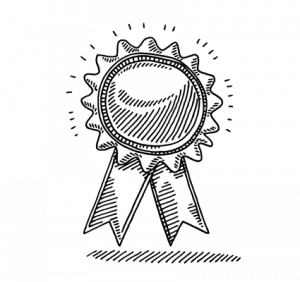It’s often said that only two things are certain in life: death and taxes. And that universal truth is behind one of the main reasons that attorneys chose to specialize in tax law: employment in this practice area is essentially recession-proof. That benefit is becoming more important as the global economy slows down and some law firms announce job cuts, after a frenzied couple of years of hiring during the pandemic.
As such, law schools are reporting that demand for LL.M. programs in Tax Law is on the rise, owing to the strength of the career opportunities that graduates of such programs are enjoying in an otherwise downbeat job market at top law firms.
Hiring in tax law, on the other hand, is “pretty much” recession-proof, according to Scott Schumacher, a Professor of Law at University of Washington School of Law in Seattle.
“What’s the old saying about the only two things that are certain, death and taxes? Taxpayers, including businesses, must file tax returns every year, regardless of the state of the economy,” he explains. “Business transactions occur even in a recession, and sometimes even more so. Unfortunately, people die during recessions, and they need their estate and related tax issues handled. There will always be a need for good tax lawyers.”
Robust demand for Tax Law studies
The demand for the University of Washington’s Tax LL.M. “remains strong”, he adds. “There are many opportunities for our graduates in law firms, accounting firms, and local companies [in Seattle].” Indeed, Schumacher says that, for many tax law positions, an LL.M. is required or at least expected.
“An LL.M. in Tax is the credential if someone wants to practice in tax. It is the entrée into practice,” he adds, noting the school’s own Tax LL.M. has long standing relationships with companies like Amazon, Microsoft, and Starbucks, which hire graduates from the program.
Beyond resilient job prospects, one of the exciting things about studying tax law is that it is constantly changing, owing to its increasing complexity. That means that law school faculty need to stay on top of all of the changes in tax laws. For instance, the E.U.’s promise to introduce a global deal to set a minimum tax rate for multinationals of 15 percent is expected to trigger a wave of implementation across the world.
A dynamic field of study
“Teaching tax, especially international tax, is challenging,” says Jonathan Schwarz, a Visiting Professor at the Dickson Poon School of Law at King’s College London. “We are constantly updating our courses to meet this need. A key goal in doing this is to give students a perspective and skills that will enable them to deal with this change throughout their careers.”
Like Schwarz, the other teachers on the Tax Law LLM. at King’s are mostly practitioners with hands-on experience of the subjects they teach. Through their guidance, students gain a systemic, international and comparative examination of tax and also develop their independent and critical thinking skills.
As such, demand for the program is high, not least because the LL.M. at King’s is delivered remotely through online learning. “There is strong worldwide demand. The ability to work and study at the same time is very attractive to professionals seeking to develop their knowledge and skills,” explains Schwarz.
Some external factors have also driven demand up for the program. “Brexit has meant increased demand from the E.U. without the need to come to the U.K,” Schwarz says of Britain's departure from the European Union. “Brazil joining the OECD and adapting its tax system is another example,” he continues.
Because of these constant, global changes, he adds that there is always demand for tax professionals as the field becomes ever more complex, particularly in the international arena.
“Hiring is not entirely recession-proof as demand for those who give advice on transactions is affected by the levels of investment and commercial transactions,” Schwarz adds. “[But] recessions often see an increase in demand for those who deal with tax disputes.”
Technology reshapes tax law
When it comes to getting hired, core competencies in basic technologies, such as Microsoft Excel, are still the most critical for tax attorneys. “However, we are hearing from employers that they increasingly value more advanced technology skills, such as familiarity with blockchain, AI, or computer programming languages,” says Christina Rice, Director of Boston University Law School’s Graduate Tax Program.
The program includes a course on Tax and Technology that examines the convergence of technology solutions in support of taxation. “The course also gives students exclusive access to tax software actually used by multinational corporations to determine indirect taxes in the US and nearly 200 other countries and foreign tax jurisdictions,” Rice says.
Moreover, BU Law also offers a course on Tax Fraud and Technology that undertakes a detailed examination of technology-based responses to technology-facilitated tax frauds. “Technology is impacting nearly every aspect of tax practice,” she adds. All the more reason to acquire key skills and competencies on a Tax LL.M.










